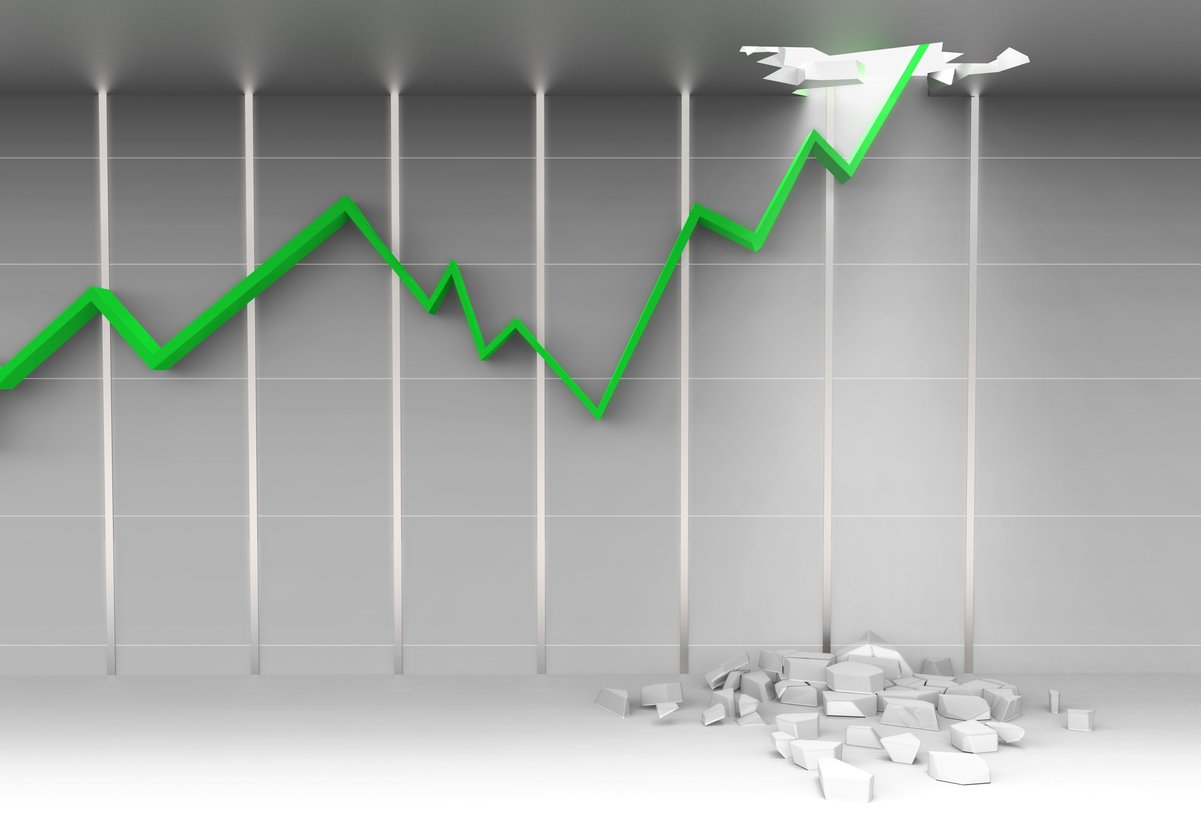
Image: Caterpillar.
The U.S. economy has been persistently strong in recent years, but much of the rest of the world is struggling under the weight of slowing economic growth, with the threat of recession plaguing certain areas of the globe. Both heavy-equipment manufacturer Caterpillar (CAT 0.04%) and Swiss robotics and automation-technology multinational ABB (ABB +0.42%) have fought against sluggish economic conditions with varying degrees of success, and investors in both believe that once cyclical pressures let up, their stocks could climb. The question is which one would do better in a recovery. Let's look at how Caterpillar and ABB compare on some key metrics to see which one might be a smarter pick for investors.
Valuation
Neither Caterpillar nor ABB has seen their shares do much over the past year. ABB is down 7% since April 2015, and Caterpillar has fallen by a fraction of a percent.
Judging valuation can be a tricky matter, but looking at some simple valuation methods can give at least a glimpse at the relative value between ABB and Caterpillar. Using trailing earnings, ABB and Caterpillar look similarly valued, because both stock trade at an earnings multiple of about 22. Caterpillar has a slight discount, but the difference isn't very substantial.
When you look at the two companies on a forward-looking basis, though, a bigger gap arises. ABB's forward earnings multiple is just 17, while Caterpillar earnings are expected to remain roughly flat, leaving it trading at 21 times forward earnings. If you believe in the idea that ABB will get back some of its lost earnings more quickly than Caterpillar, then ABB looks like the more cheaply valued stock.
Dividends
Dividend investors like to see current income, and both Caterpillar and ABB are roughly comparable on the dividend front. The heavy-equipment specialist's dividend yield is almost exactly 4%. ABB's yield is also close to 4% using current exchange-rate translations.
One thing to keep in mind is that the two companies pay their dividends differently. Like many European companies, ABB establishes dividends every year, and it pays them either in a single payment or in two separate payments of different amounts. The two most recent payments for ABB amounted to 0.72 Swiss francs, which is equivalent to about $0.75. ABB has aggressively boosted its dividends over the past decade, now paying six times what it did in 2005. Increases have been more modest in recent years because of the company's challenges, but ABB has nevertheless kept its payouts moving upward.
Similarly, Caterpillar has demonstrated a long-term belief in the value of dividends. The company has raised its payout each year for 22 straight years, and it pays more than triple what it did a decade ago. The two stocks look roughly equal from a dividend perspective.
Growth
For cyclical companies like Caterpillar and ABB, investors want to know when conditions will start turning around. Caterpillar doesn't expect that to happen in 2016, having made calls for further substantial revenue declines for the full year. The plunge in energy prices was the primary source of new pain for Caterpillar in 2015, but the company has also had to deal with long-term challenges in its natural resources and construction markets. An uptick in global economic growth is what would do Caterpillar the most good, but few are optimistic that such a turnaround will come in the near future. In the long run, though, efforts to incorporate Caterpillar equipment into the Internet of Things could give the company a competitive edge, although many of its rivals are looking at similar initiatives.
ABB is even more intimately connected to the Internet of Things, with areas like process automation, power systems, and intelligent motion drives all playing a role in making the movement a reality. ABB believes that several of its customer sectors could benefit from its efforts in the space, including utilities, industrials, and infrastructure and transportation. Moreover, the desire to maximize efficiency should help ABB's long-term prospects, and the company is working toward new technology to promote microgrids as well as smart cities, buildings, and homes.
Both Caterpillar and ABB have promise once economies across the globe start to turn. Right now, though, ABB looks like the better buy. A slightly cheaper valuation combined with arguably stronger growth prospects add up to an edge for ABB over Caterpillar, although both stocks have plenty of room to run higher in the next cyclical upturn.







